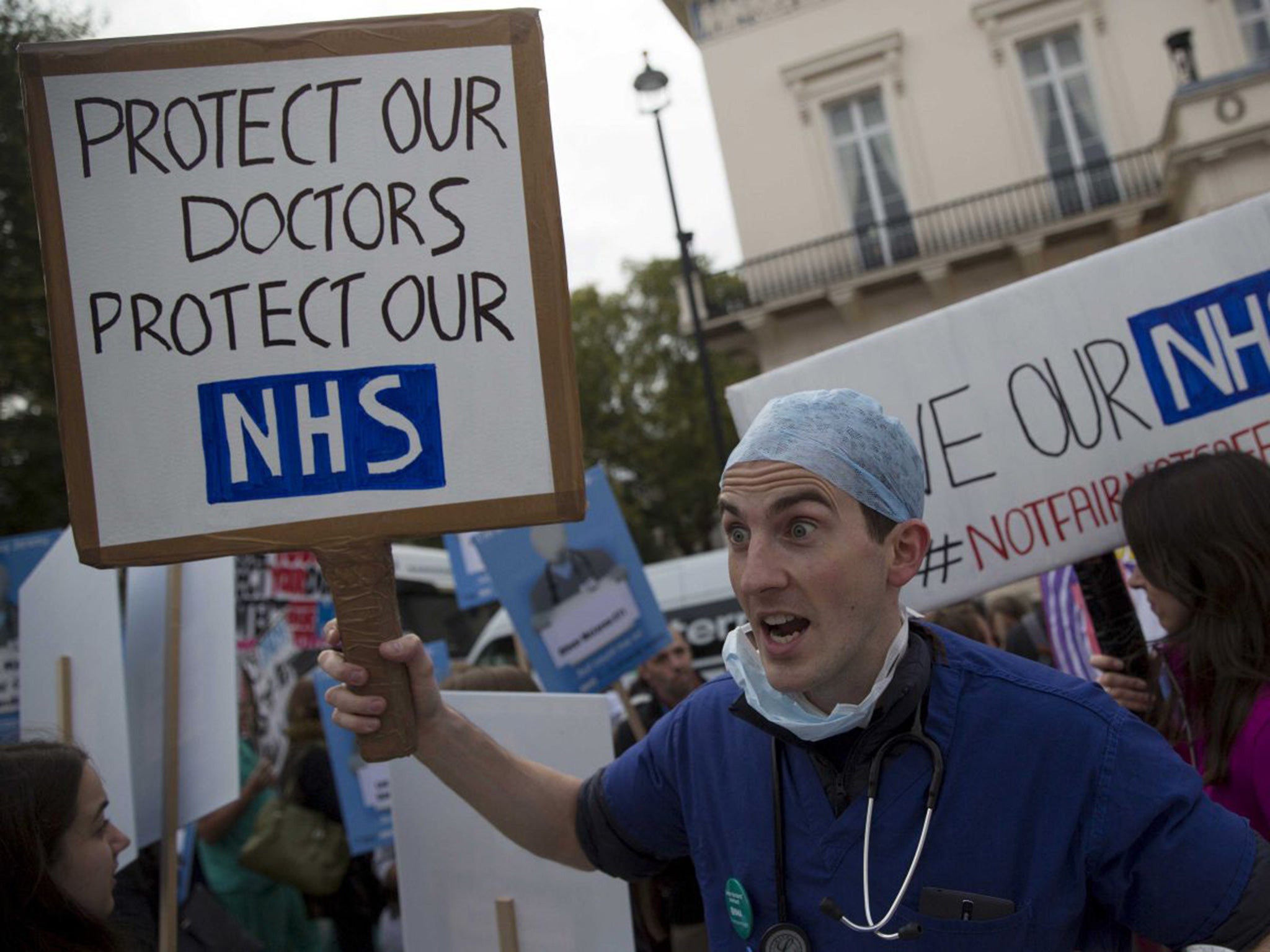Doctors' strike: Analysis finds that NHS patients will not be more likely to die during action period
Last week, 98 per cent of junior doctors voted in favour of strikes, with 2 per cent against

Your support helps us to tell the story
From reproductive rights to climate change to Big Tech, The Independent is on the ground when the story is developing. Whether it's investigating the financials of Elon Musk's pro-Trump PAC or producing our latest documentary, 'The A Word', which shines a light on the American women fighting for reproductive rights, we know how important it is to parse out the facts from the messaging.
At such a critical moment in US history, we need reporters on the ground. Your donation allows us to keep sending journalists to speak to both sides of the story.
The Independent is trusted by Americans across the entire political spectrum. And unlike many other quality news outlets, we choose not to lock Americans out of our reporting and analysis with paywalls. We believe quality journalism should be available to everyone, paid for by those who can afford it.
Your support makes all the difference.People worried about the forthcoming doctors’ strike can take heart. Patients are not more likely to die when doctors go on strike, researchers say.
A new analysis of strikes around the world, including the UK, found no evidence that death rates among patients increase on strike days.
The report, published in the British Medical Journal, comes a week before junior doctors across the UK take action in a dispute with the Government over contracts.
Last week, 98 per cent of junior doctors voted in favour of strikes, with 2 per cent against, in a ballot of more than 37,000 doctors by the British Medical Association (BMA).
Doctors will strike over three days. They will provide emergency care only, for 24 hours from 8am on 1 December, followed by full walkouts from 8am to 5pm on 8 and 16 December.
There is expected to be mass disruption to the NHS, with hospitals forced to cancel outpatient clinics and non-urgent operations.
The Health Secretary, Jeremy Hunt, has warned that the strikes will “harm vulnerable patients”.
However, in the new analysis, experts from Harvard Medical School and Brigham and Women’s Hospital in Boston in the US found that in high-income countries “patients do not come to serious harm during industrial action”.
They looked at strike action around the world and found no evidence of increased deaths, probably because provisions were always made for emergency care.
Death rates have remained the same, or decreased, during all previous doctor strikes that have been studied in developed countries, the team said.
In 2012, the BMA organised a single day of action in response to pension reforms, with the aim of boycotting non-urgent care, they wrote.
While the BMA and the Government disagreed on how many doctors took part, with the Government estimating that 8 per cent of the workforce was on strike, “there were fewer in-hospital deaths on this day, both among elective and emergency populations, although neither difference was significant,” the researchers said.
Emergency care may even improve during industrial action, they added. For example, during a 1999 strike in Spain, junior doctors in A&E were replaced by more senior doctors.
It is also likely that temporary reductions in death rates are related to the cancellation of non-urgent surgery, they said. Other possibilities are that doctors are better rested during strike periods.
But the researchers warned that although death rates do not increase, services can be severely disrupted.
“Service disruption can be substantial, even when comparatively few doctors participate, as in the 2012 UK strike over pensions. Although elective admissions fell by only 12.8 per cent, outpatient cancellations increased by 45.5 per cent on the day of the strike.”
PA
Join our commenting forum
Join thought-provoking conversations, follow other Independent readers and see their replies
Comments